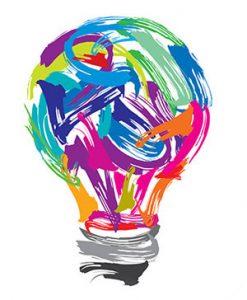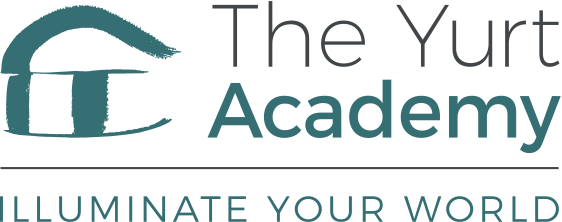Let’s Change our Perception of Creativity
Over my many years of teaching creative thinking in organisations and universities, I tend to start with the same question: Who here is creative? And I get almost exactly the same response each time.
The shocking reality is that less than 10% of people in higher education or employment say that they are creative. A few, perhaps another 2%, raise their hand in a timid manner, quivering to shoulder height, perhaps indicating a personal belief that they are creative but a wariness of admitting it.
Less than 10% of people in higher education or employment say that they are creative
And yet, according to research conducted by creative thinking skills guru Professor Paul Torrance, if you ask a bunch of school children under the age of 13 the same question, the answer is staggeringly different – more than 80% believe that they are creative.
So, between the ages of 12 and 19 something, in terms of our perception of our own levels of creativity, goes horribly wrong.
There is no doubt that our current world is perversely built to constrain creativity with its preference for exploitation over exploration. The whole system is built around the concept of growth and maximization forcing an ever-tightening space for creative exploration.
This has a knock-on effect in our education system. The system is becoming increasingly test centric, risk avoiding and focuses more and more on the marginal and not the exceptional. There is growing avoidance of non-tested subjects such as the arts, music and social sciences, and less and less space for imagination and intellectual play. And so, by the time we leave secondary education, most of us no longer trust in our creative capacity.
In terms of our perception of our own levels of creativity something goes horribly wrong.
By the time we enter employment the vast majority of us have no faith in our creative ability.
We are all born creative, and then we spend many years learning not to be. It is not that the skill has gone away, because it hasn’t. But the will has been diminished because the perception of the need has atrophied in the race for growth and productivity. Without faith in our ability to be creative, we have no chance of actually becoming creative once more.
But creativity is a thought process, and as such is a muscle that can be retrained with patience, confidence and determination.
To build our creative muscle, we need to stimulate new neural connections by expanding the range of input, thoughts and ideas. We need to feed our brains, flex our thinking muscles, question, link, observe, associate, network. We need to experiment and be curious.
Our brains are self-organising systems of epic proportion
And like all muscles, time spent recovering is key. Creative recovery includes sleep, daydreaming, playing, relaxing. We must give time for this fundamental process of giving our brains space to sort and clear, organise and store and prepare for yet more stimulation to come.
Our brains are self-organising systems of epic proportion. Their job is to make our world simple so that we may achieve the mundane and the complicated. They are at work 24 hours a day, either in Task Mode – thinking, analysing, doing, achieving, or in Default Mode – sorting, clearing, organising and storing information. The Task Mode helps us do, the Default Mode helps us be. Both are vital for creative thinking, living, being.
What happens when we begin to rebuild our creative muscle? As our neural tendrils spread and search to form new pathways, they crash and collide and stimulate new thoughts and ideas. And as an added bonus dopamine is released which makes us feel great, and so we want to do more. Creative thinking feeds creative thinking. Our muscles get stronger, our desire to think creatively gets stronger too.
Adventure, mastery and insight
Like most things in life, to develop our creativity we require adventure – a sense of play and experimentation; mastery – the determined practice of the skill; and insight – the ability to reflect on how we are doing.
Finally, we need to be confident of who we are as individuals, and joyful of our differences.
—
Looking to boost the creative intelligence of your team or organisation?
Master Creative Intelligence – Tools, Tips and Techniques

In this workshop, we explore how we think, where we get stuck, and how to see afresh. We learn to use different thinking tools for different occasions and build creative muscle. We also explore some of the psychological attitudes that influence our creative potential and abilities. Ultimately, we gain a fresh perspective on how to improve personal and team creative output bringing real value to team performance.

